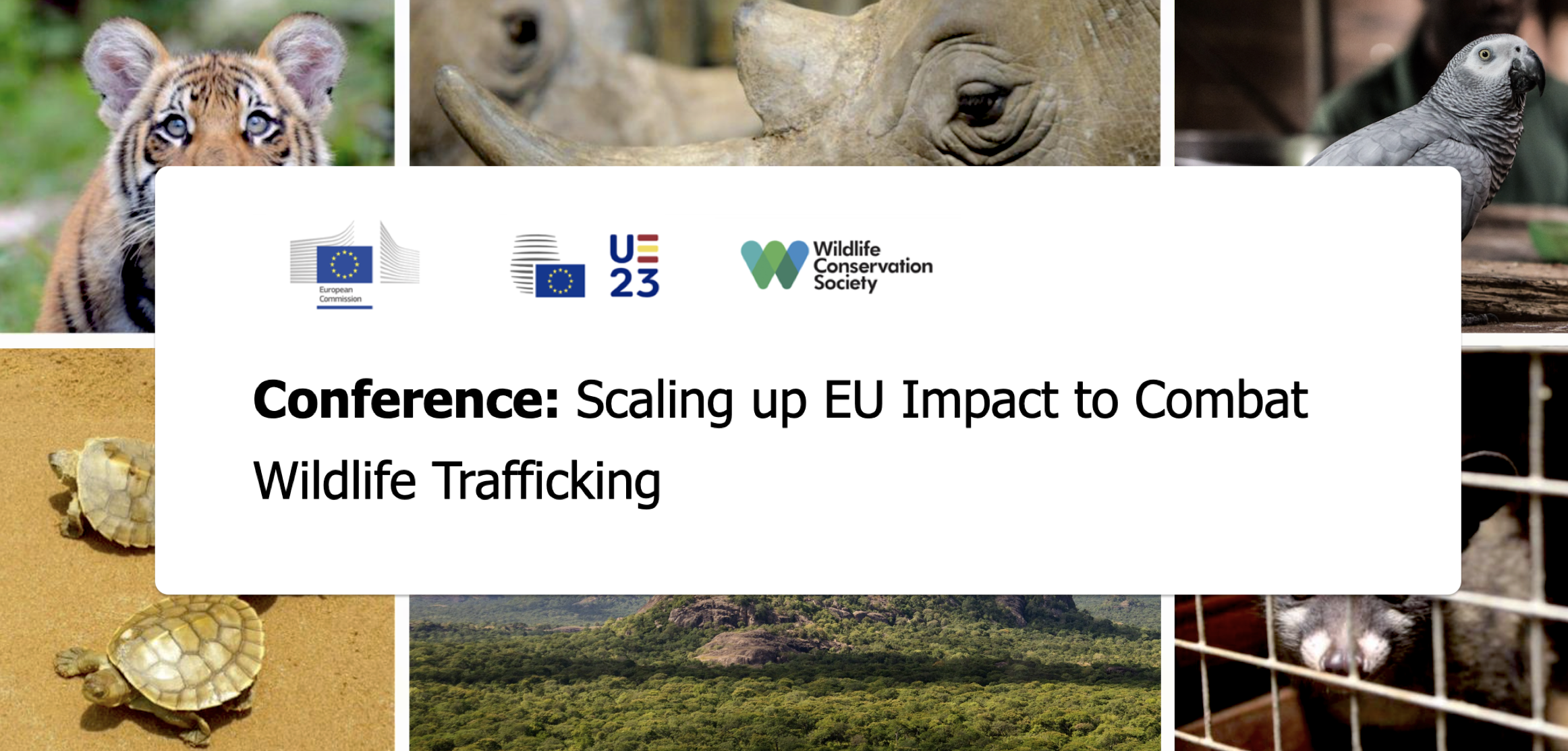
SPEAKERS BIOGRAPHIES
Alphabetical order
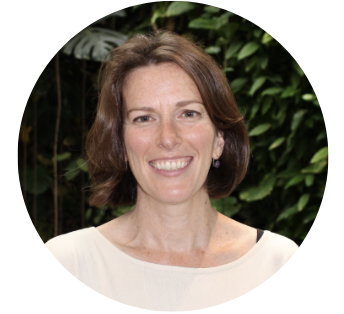 Sarah Baker Ferguson is the Nature Crimes Convergence Lead at TRAFFIC. Prior to this position, she was the Country Director for TRAFFIC in Viet Nam, where she also held positions with the Viet Nam CITES Management Authority and the British Embassy in Hanoi to host the Hanoi Conference on Illegal Wildlife Trade. Previous to this, she worked for the UN at the International Trade Center, the CITES Secretariat, and the US Government with the State of Washington. Sarah is a lawyer and brings over 20 years of experience in wildlife conservation and policy development.
Sarah Baker Ferguson is the Nature Crimes Convergence Lead at TRAFFIC. Prior to this position, she was the Country Director for TRAFFIC in Viet Nam, where she also held positions with the Viet Nam CITES Management Authority and the British Embassy in Hanoi to host the Hanoi Conference on Illegal Wildlife Trade. Previous to this, she worked for the UN at the International Trade Center, the CITES Secretariat, and the US Government with the State of Washington. Sarah is a lawyer and brings over 20 years of experience in wildlife conservation and policy development.
 Hanny Cueva Beteta is the Head of UNODC’s Global Programme on Crimes that Affect the Environment based in Vienna. She has over 25 years of professional experience, including more than 15 years with the UN System at headquarters, regional and country locations. Prior to her current assignment, she served as UNODC’s Chief of the Regional Section for Latin America and the Caribbean. Previously, she was Regional Advisor on Governance, Peace and Security with UN Women’s Regional Office for Asia and the Pacific in Bangkok. Earlier postings also include UN Women’s Policy Advisor on Women, Peace and Security in New York. Hanny Cueva Beteta holds a BA in Economics by the Universidad del Pacifico in Lima, Peru and a MPhil in Development Studies by the Institute of Development Studies, Sussex University, United Kingdom.
Hanny Cueva Beteta is the Head of UNODC’s Global Programme on Crimes that Affect the Environment based in Vienna. She has over 25 years of professional experience, including more than 15 years with the UN System at headquarters, regional and country locations. Prior to her current assignment, she served as UNODC’s Chief of the Regional Section for Latin America and the Caribbean. Previously, she was Regional Advisor on Governance, Peace and Security with UN Women’s Regional Office for Asia and the Pacific in Bangkok. Earlier postings also include UN Women’s Policy Advisor on Women, Peace and Security in New York. Hanny Cueva Beteta holds a BA in Economics by the Universidad del Pacifico in Lima, Peru and a MPhil in Development Studies by the Institute of Development Studies, Sussex University, United Kingdom.
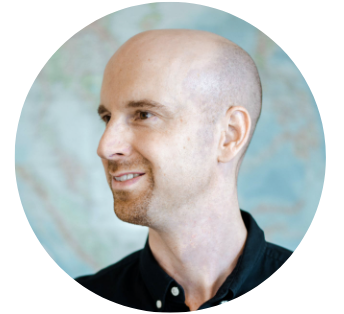 Jonathan Hunter is Program Coordinator - Wildlife Crime Leadership Initiative at WCS. He served seven years in the UK’s Metropolitan Police Service before moving to Southeast Asia where, since 2014, he has been supporting WCS to counter wildlife trafficking. In that time, Jonathan developed bespoke information management systems, led problem-solving processes, as well as developed capacity building programs for law enforcement leaders. Jonathan is a member of Arizona State University's Wilderness Problem Solving Editorial Board within the Centre for Problem-Oriented Policing.
Jonathan Hunter is Program Coordinator - Wildlife Crime Leadership Initiative at WCS. He served seven years in the UK’s Metropolitan Police Service before moving to Southeast Asia where, since 2014, he has been supporting WCS to counter wildlife trafficking. In that time, Jonathan developed bespoke information management systems, led problem-solving processes, as well as developed capacity building programs for law enforcement leaders. Jonathan is a member of Arizona State University's Wilderness Problem Solving Editorial Board within the Centre for Problem-Oriented Policing.
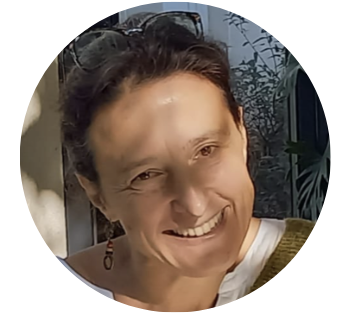 Alexia Jonckheere, PhD, works at the Department of Criminology of the National Institute of Criminalistics and Criminology (Brussels, Belgium) since 2004. She studied Law and Criminology and received her PhD in Criminology in 2011 following a study on the management of the Belgian Probation Service. She does research on the penal protection of the environment, the execution of community sentences and measures, and administrative sanctions introduced at the local and regional level. She is a member of the editorial board of the journal Déviance et Société and teaches at the Catholic Universities of Louvain-la-Neuve (Belgium) and Lille (France).
Alexia Jonckheere, PhD, works at the Department of Criminology of the National Institute of Criminalistics and Criminology (Brussels, Belgium) since 2004. She studied Law and Criminology and received her PhD in Criminology in 2011 following a study on the management of the Belgian Probation Service. She does research on the penal protection of the environment, the execution of community sentences and measures, and administrative sanctions introduced at the local and regional level. She is a member of the editorial board of the journal Déviance et Société and teaches at the Catholic Universities of Louvain-la-Neuve (Belgium) and Lille (France).
 Lude Kinzonzi is a student pursuing the Postgraduate Diploma in International Conservation Practice at the University of Oxford. He previously worked five years as Campaign Assistant with the WCS Urban Bushmeat Project in the Republic of Congo. His current research focuses on a case study of a behavioral intervention conducted in 2019, to reduce urban bushmeat consumption in Pointe-Noire, Republic of Congo. This research, together with his previous contribution to the design and implementation of demand reduction campaigns in Republic of Congo and Democratic Republic of Congo, has provided him with a first-hand experience on the use of behavioral science to reduce consumption of bushmeat.
Lude Kinzonzi is a student pursuing the Postgraduate Diploma in International Conservation Practice at the University of Oxford. He previously worked five years as Campaign Assistant with the WCS Urban Bushmeat Project in the Republic of Congo. His current research focuses on a case study of a behavioral intervention conducted in 2019, to reduce urban bushmeat consumption in Pointe-Noire, Republic of Congo. This research, together with his previous contribution to the design and implementation of demand reduction campaigns in Republic of Congo and Democratic Republic of Congo, has provided him with a first-hand experience on the use of behavioral science to reduce consumption of bushmeat.
 Lishu Li has dedicated 18 years to combating wildlife trafficking in China. Her primary focus has been on Southern China, specifically her home province of Guangdong, known as one of China's most prolific wildlife trafficking hubs. Currently, Lishu serves as the Director of the Counter Wildlife Trafficking (CWT) program for WCS in China. In this role, she leads CWT initiatives, which involve supporting effective wildlife justice, generating behavioral insights to reduce demand, and advocating for policy changes through inclusive partnerships with government entities and various social sectors. Lishu also serves as CWT coordinator for the Temperate Asia Region including China, Mongolia, and Central Asian countries. Her academic background includes a bachelor's degree in Bioscience and Technology, and she pursued graduate studies at the University of Montana, focusing on the behavioral ecology of Siberian ibex in Mongolia.
Lishu Li has dedicated 18 years to combating wildlife trafficking in China. Her primary focus has been on Southern China, specifically her home province of Guangdong, known as one of China's most prolific wildlife trafficking hubs. Currently, Lishu serves as the Director of the Counter Wildlife Trafficking (CWT) program for WCS in China. In this role, she leads CWT initiatives, which involve supporting effective wildlife justice, generating behavioral insights to reduce demand, and advocating for policy changes through inclusive partnerships with government entities and various social sectors. Lishu also serves as CWT coordinator for the Temperate Asia Region including China, Mongolia, and Central Asian countries. Her academic background includes a bachelor's degree in Bioscience and Technology, and she pursued graduate studies at the University of Montana, focusing on the behavioral ecology of Siberian ibex in Mongolia.
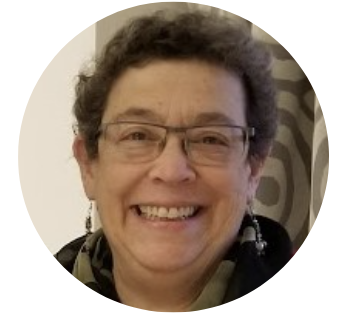 Susan Lieberman, PhD, is Vice President, International Policy with the Wildlife Conservation Society (WCS), and leads WCS’s policy engagement in multiple intergovernmental fora. She has worked in international biodiversity conservation, at the intersection of science and policy, for more than 35 years, including extensive experience with international wildlife trade including wildlife trafficking. She has extensive experience with treaties and other intergovernmental bodies, including CBD, CITES, CMS, UNESCO-World Heritage, WHO, and others. Previously, she worked for Pew Charitable Trusts, WWF-International, and the U.S. Fish and Wildlife Service. She obtained her Ph.D. in tropical ecology from the University of Southern California, where she also did postdoctoral research. Sue is an elected member of the IUCN Council; Chair of the Council’s Programme and Policy Committee; Fellow of the Zoological Society of London; and was a member of President Obama’s Advisory Council on Wildlife Trafficking.
Susan Lieberman, PhD, is Vice President, International Policy with the Wildlife Conservation Society (WCS), and leads WCS’s policy engagement in multiple intergovernmental fora. She has worked in international biodiversity conservation, at the intersection of science and policy, for more than 35 years, including extensive experience with international wildlife trade including wildlife trafficking. She has extensive experience with treaties and other intergovernmental bodies, including CBD, CITES, CMS, UNESCO-World Heritage, WHO, and others. Previously, she worked for Pew Charitable Trusts, WWF-International, and the U.S. Fish and Wildlife Service. She obtained her Ph.D. in tropical ecology from the University of Southern California, where she also did postdoctoral research. Sue is an elected member of the IUCN Council; Chair of the Council’s Programme and Policy Committee; Fellow of the Zoological Society of London; and was a member of President Obama’s Advisory Council on Wildlife Trafficking.
 Chantal Marijnissen is the Head of Unit for Environment, Sustainable Natural Resources in DG INTPA at the European Commission. Prior to this posting, she was the Acting Head of Unit for Effectiveness and Financing, where she negotiated the Addis Ababa Action Agenda on behalf of the EU and its Member States and Development Effectiveness Agenda (2014- 2016). Chantal was also responsible for the multiannual programming of the European Development Fund and methodological aspects of EU development cooperation (2007-2014). She was the economic advisor to the EU Delegation in Chad (2004-2007). Before working in the Commission, she worked for an environmental NGO, FERN, on trade and Forest Law Enforcement, Governance and Trade (FLEGT) (1998 -2004) and for the International Institute on Environment and Development on forest certification (1996-1998).
Chantal Marijnissen is the Head of Unit for Environment, Sustainable Natural Resources in DG INTPA at the European Commission. Prior to this posting, she was the Acting Head of Unit for Effectiveness and Financing, where she negotiated the Addis Ababa Action Agenda on behalf of the EU and its Member States and Development Effectiveness Agenda (2014- 2016). Chantal was also responsible for the multiannual programming of the European Development Fund and methodological aspects of EU development cooperation (2007-2014). She was the economic advisor to the EU Delegation in Chad (2004-2007). Before working in the Commission, she worked for an environmental NGO, FERN, on trade and Forest Law Enforcement, Governance and Trade (FLEGT) (1998 -2004) and for the International Institute on Environment and Development on forest certification (1996-1998).
 Yovana Murillo is a Peruvian veterinarian with diplomas in Wildlife Management and Conservation and Project Management. She has more than 15 years of knowledge and experience developing actions for wildlife conservation in Peru obtained through training and work. In 2012, she was part of the PREDICT project field team – part of USAID's Program on "Emerging Pandemic Threats." In 2015, she assumed leadership under the counter wildlife trafficking and health initiative at the Wildlife Conservation Society (WCS) in Peru. Since 2020, she has taken the management of the counter wildlife trafficking (CWT) program in the Andes Amazon and Orinoco Region (AAO) at WCS, including countries such as Peru, Colombia, Ecuador, Bolivia, and Brazil. As part of her role, she serves as director of the Alliance for Wildlife and Forests, a regional action supported by the European Union.
Yovana Murillo is a Peruvian veterinarian with diplomas in Wildlife Management and Conservation and Project Management. She has more than 15 years of knowledge and experience developing actions for wildlife conservation in Peru obtained through training and work. In 2012, she was part of the PREDICT project field team – part of USAID's Program on "Emerging Pandemic Threats." In 2015, she assumed leadership under the counter wildlife trafficking and health initiative at the Wildlife Conservation Society (WCS) in Peru. Since 2020, she has taken the management of the counter wildlife trafficking (CWT) program in the Andes Amazon and Orinoco Region (AAO) at WCS, including countries such as Peru, Colombia, Ecuador, Bolivia, and Brazil. As part of her role, she serves as director of the Alliance for Wildlife and Forests, a regional action supported by the European Union.
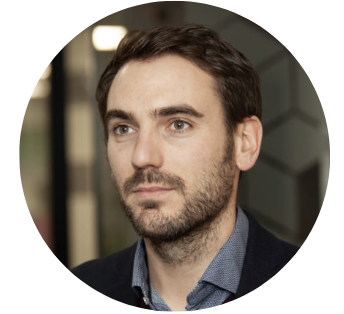 Toby Park leads the energy, environment and sustainability work at the Behavioural Insights Team (BIT). BIT were the world's first government institution dedicated to applying behavioural science to improve social and environmental outcomes, created inside the UK Prime Ministers office in 2010. They're now a social purpose consultancy owned by a UK charity. Toby's focus is on the behavioural science of pro-environmental action, focusing on a range of topics including the decarbonisation of domestic heating, transport and food, water conservation, circular economy, and wildlife conservation. His background is a combination of psychology and engineering, and he has led well over 50 behavioural insights projects involving the design, implementation and evaluation of behaviour-change interventions with governments, charities and private sector partners. He is also acting advisor to the Welsh and Scottish Government's on their public engagement and behaviour change strategies for Net Zero.
Toby Park leads the energy, environment and sustainability work at the Behavioural Insights Team (BIT). BIT were the world's first government institution dedicated to applying behavioural science to improve social and environmental outcomes, created inside the UK Prime Ministers office in 2010. They're now a social purpose consultancy owned by a UK charity. Toby's focus is on the behavioural science of pro-environmental action, focusing on a range of topics including the decarbonisation of domestic heating, transport and food, water conservation, circular economy, and wildlife conservation. His background is a combination of psychology and engineering, and he has led well over 50 behavioural insights projects involving the design, implementation and evaluation of behaviour-change interventions with governments, charities and private sector partners. He is also acting advisor to the Welsh and Scottish Government's on their public engagement and behaviour change strategies for Net Zero.
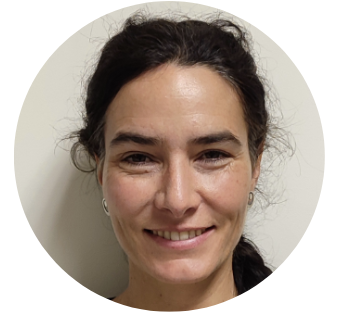 Diana Pérez-Aranda Serrano works at the General Subdirectorate of Terrestrial and Marine Biodiversity of the Ministry for the Ecological Transition and the Demographic Challenge of Spain (MITECO), and is part of the team that leads the development and execution of the Spanish Action Plan against illegal trafficking and international poaching of wildlife species (Plan TIFIES) from its approval in 2018. She is also part of the CITES Management Authority of Spain since the beginning of 2022, date on which the change in the scheme of CITES authorities in Spain came into force, and the powers as CITES Management Authority were assumed by the competent Ministry in environmental matters. As part of her work related to CITES and the fight against wildlife trafficking, she acts as the focal point for the communications between the CITES Management Authority and the CITES Enforcement Authorities.
Diana Pérez-Aranda Serrano works at the General Subdirectorate of Terrestrial and Marine Biodiversity of the Ministry for the Ecological Transition and the Demographic Challenge of Spain (MITECO), and is part of the team that leads the development and execution of the Spanish Action Plan against illegal trafficking and international poaching of wildlife species (Plan TIFIES) from its approval in 2018. She is also part of the CITES Management Authority of Spain since the beginning of 2022, date on which the change in the scheme of CITES authorities in Spain came into force, and the powers as CITES Management Authority were assumed by the competent Ministry in environmental matters. As part of her work related to CITES and the fight against wildlife trafficking, she acts as the focal point for the communications between the CITES Management Authority and the CITES Enforcement Authorities.
 Mary Rice has worked in the environmental sector for almost three decades and is the Executive Director of the Environmental Investigation Agency (EIA) in the UK. As Executive Director, Mary is responsible for directing the operational and long-term strategic management of EIA UK, participating in political engagement and outreach, contributing to the strategic development of EIA’s programme of work and representing EIA externally. Prior to joining EIA, Mary lived and worked in Asia and Africa for 15 years. Trained as a journalist, Mary is also a published author and photographer.
Mary Rice has worked in the environmental sector for almost three decades and is the Executive Director of the Environmental Investigation Agency (EIA) in the UK. As Executive Director, Mary is responsible for directing the operational and long-term strategic management of EIA UK, participating in political engagement and outreach, contributing to the strategic development of EIA’s programme of work and representing EIA externally. Prior to joining EIA, Mary lived and worked in Asia and Africa for 15 years. Trained as a journalist, Mary is also a published author and photographer.
 Scott Roberton, PhD, is Executive Director for Counter-Wildlife Trafficking at WCS. Scott has over 20 years’ experience working to combat wildlife trafficking, primarily across Asia including work in Viet Nam, China, Lao PDR, Cambodia, Myanmar, Indonesia but also in developing transcontinental initiatives between Africa-Asia and in developing a counter wildlife trafficking strategy for the Latin America region. Scott has led pioneering research into a wide range of critical conservation issues; developed curricula, training materials and technical guides, and delivered training to law enforcement officers; coordinated analyses and provided reform plans for provincial and central government agencies in institutional arrangements and legislative frameworks for wildlife crime control; criminal information/intelligence management, inter-agency cooperation mechanisms, and international cooperation agreements; and provided inputs and consultation on revised wildlife protection legislation.
Scott Roberton, PhD, is Executive Director for Counter-Wildlife Trafficking at WCS. Scott has over 20 years’ experience working to combat wildlife trafficking, primarily across Asia including work in Viet Nam, China, Lao PDR, Cambodia, Myanmar, Indonesia but also in developing transcontinental initiatives between Africa-Asia and in developing a counter wildlife trafficking strategy for the Latin America region. Scott has led pioneering research into a wide range of critical conservation issues; developed curricula, training materials and technical guides, and delivered training to law enforcement officers; coordinated analyses and provided reform plans for provincial and central government agencies in institutional arrangements and legislative frameworks for wildlife crime control; criminal information/intelligence management, inter-agency cooperation mechanisms, and international cooperation agreements; and provided inputs and consultation on revised wildlife protection legislation.
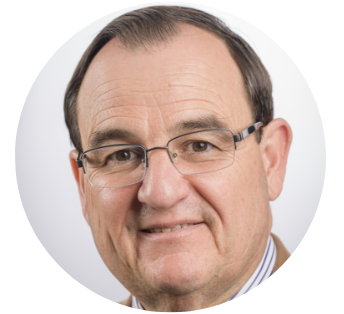 Santiago Rodríguez-Uriel holds an advanced degree in Telecommunications Engineering from the Technical University of Madrid (UPM), and a master in Management of Communication Systems and Technologies from the Spanish Institute for Public Administration (INAP). He joined the Spanish National Administration as a civil servant in 1993. He has worked in the State Secretary for the European Union and as a member of the cabinet of several high officers or policy makers: Undersecretary of Science and Technology; Undersecretary of Industry, Tourism and Commerce; Secretary-General for Scientific and Technological Policy and Secretary of State for Research. He was the Head of Cabinet of the Secretary of State for Research, Development and Innovation from January 2012 to December 2014. In the Permanent Representation of Spain to the European Union, he has been Counsellor for Research and Innovation for more than six years (May 09 – Dec. 11 and Jan. 15 – Oct. 18), and Counsellor for Regional Affairs from November 2018 to December 2022. Since January 2023, he is Counsellor for the Environment.
Santiago Rodríguez-Uriel holds an advanced degree in Telecommunications Engineering from the Technical University of Madrid (UPM), and a master in Management of Communication Systems and Technologies from the Spanish Institute for Public Administration (INAP). He joined the Spanish National Administration as a civil servant in 1993. He has worked in the State Secretary for the European Union and as a member of the cabinet of several high officers or policy makers: Undersecretary of Science and Technology; Undersecretary of Industry, Tourism and Commerce; Secretary-General for Scientific and Technological Policy and Secretary of State for Research. He was the Head of Cabinet of the Secretary of State for Research, Development and Innovation from January 2012 to December 2014. In the Permanent Representation of Spain to the European Union, he has been Counsellor for Research and Innovation for more than six years (May 09 – Dec. 11 and Jan. 15 – Oct. 18), and Counsellor for Regional Affairs from November 2018 to December 2022. Since January 2023, he is Counsellor for the Environment.
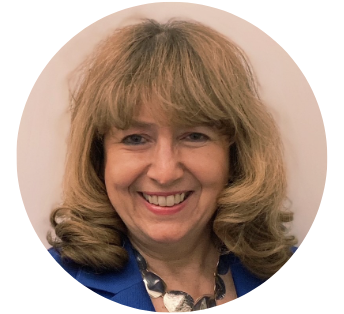 Astrid Schomaker is Director for Green Diplomacy and Multilateralism at the European Commission's Directorate General for the Environment. Her portfolio includes relations with third countries and international organisations and coordination of the EU’s extensive multilateral engagements. A lawyer by training, she joined the European Commission in 1992 where she held various posts in the external affairs department, before moving to the Environment Department in 2004 where she led work on a variety of issues including, chemicals, oceans and water industry as well as overall coordination and communication. She took up her present position in July 2017.
Astrid Schomaker is Director for Green Diplomacy and Multilateralism at the European Commission's Directorate General for the Environment. Her portfolio includes relations with third countries and international organisations and coordination of the EU’s extensive multilateral engagements. A lawyer by training, she joined the European Commission in 1992 where she held various posts in the external affairs department, before moving to the Environment Department in 2004 where she led work on a variety of issues including, chemicals, oceans and water industry as well as overall coordination and communication. She took up her present position in July 2017.
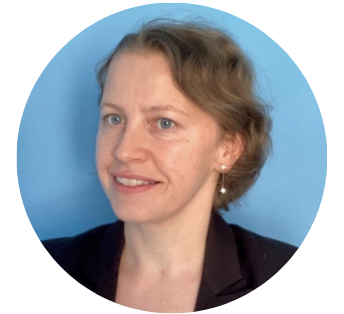 Agata Sobiech leads the team dealing with CITES and wildlife trafficking in the European Commission’s Directorate-General for Environment. Prior to this assignment she worked in several other European Commission departments, including international cooperation and home affairs, on issues such as Schengen cooperation, migration, trafficking in human beings and youth participation. She holds degrees in international relations, European studies and psychology.
Agata Sobiech leads the team dealing with CITES and wildlife trafficking in the European Commission’s Directorate-General for Environment. Prior to this assignment she worked in several other European Commission departments, including international cooperation and home affairs, on issues such as Schengen cooperation, migration, trafficking in human beings and youth participation. She holds degrees in international relations, European studies and psychology.
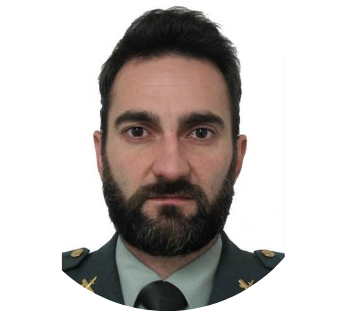 Major Carlos Toledano is a member of the Spanish Guardia Civil and holds a law degree. He has 20 years of active service in which he has held positions dedicated to civil security, and mainly to criminal investigation. He is currently a member of the Central Investigation Unit, belonging to the Guardia Civil's Environmental Protection Service. He is in charge of the group dedicated to combating the illegal trade in protected species, illegal logging, fishing and hunting, as well as any other crime affecting biodiversity. He is an operational member of the Jaguar Network, action leader in several operational actions of the Environmental Crime EMPACT, as well as a member of the INTERPOL Task Force Counter Forestry Crimes, among others.
Major Carlos Toledano is a member of the Spanish Guardia Civil and holds a law degree. He has 20 years of active service in which he has held positions dedicated to civil security, and mainly to criminal investigation. He is currently a member of the Central Investigation Unit, belonging to the Guardia Civil's Environmental Protection Service. He is in charge of the group dedicated to combating the illegal trade in protected species, illegal logging, fishing and hunting, as well as any other crime affecting biodiversity. He is an operational member of the Jaguar Network, action leader in several operational actions of the Environmental Crime EMPACT, as well as a member of the INTERPOL Task Force Counter Forestry Crimes, among others.
 Ben Janse Van Rensburg is the Chief of the Enforcement Unit at the Convention on International Trade in Endangered Species of Wild Fauna and Flora (CITES) Secretariat, based in Geneva, Switzerland. Ben joined CITES in 2011 and served in the South African Police Service for 21 years prior to working for CITES. As CITES Chief of the Enforcement Unit he is responsible for managing and coordinating the implementation of programs and activities on enforcement matters of the CITES Secretariat, to prevent and combat illegal trade in CITES listed specimens and in particular the activities of organized crime groups involved in wildlife crime. Ben also serves as the Chair of the International Consortium on Combating Wildlife Crime (ICCWC) Senior Experts Group. ICCWC is a Consortium comprising the CITES Secretariat, INTERPOL, the United Nations Office on Drugs and Crime, the World Bank and the World Customs Organization. In this role, Ben works in close collaboration with ICCWC partner agencies to develop and implement projects under the auspices of the Consortium.
Ben Janse Van Rensburg is the Chief of the Enforcement Unit at the Convention on International Trade in Endangered Species of Wild Fauna and Flora (CITES) Secretariat, based in Geneva, Switzerland. Ben joined CITES in 2011 and served in the South African Police Service for 21 years prior to working for CITES. As CITES Chief of the Enforcement Unit he is responsible for managing and coordinating the implementation of programs and activities on enforcement matters of the CITES Secretariat, to prevent and combat illegal trade in CITES listed specimens and in particular the activities of organized crime groups involved in wildlife crime. Ben also serves as the Chair of the International Consortium on Combating Wildlife Crime (ICCWC) Senior Experts Group. ICCWC is a Consortium comprising the CITES Secretariat, INTERPOL, the United Nations Office on Drugs and Crime, the World Bank and the World Customs Organization. In this role, Ben works in close collaboration with ICCWC partner agencies to develop and implement projects under the auspices of the Consortium.
 Daan van Uhm, PhD, is an Associate Professor of Criminology at Utrecht University, specializing in green criminology. He has conducted research on various forms of environmental crime, including illegal mining, wildlife trafficking, deforestation, organized environmental crime, and ecocide. Van Uhm received his PhD in criminology at Utrecht University in 2016, the Veni Grant of the Dutch Organization for Scientific Research (NWO) in 2018, and the ERC Starting Grant of the European Research Council in 2022. Van Uhm has conducted research on environmental crime in several countries in Asia, Africa, Europe, and Latin America in recent years.
Daan van Uhm, PhD, is an Associate Professor of Criminology at Utrecht University, specializing in green criminology. He has conducted research on various forms of environmental crime, including illegal mining, wildlife trafficking, deforestation, organized environmental crime, and ecocide. Van Uhm received his PhD in criminology at Utrecht University in 2016, the Veni Grant of the Dutch Organization for Scientific Research (NWO) in 2018, and the ERC Starting Grant of the European Research Council in 2022. Van Uhm has conducted research on environmental crime in several countries in Asia, Africa, Europe, and Latin America in recent years.
 Julie Viollaz works as the wildlife crime research officer for the United Nations Office on Drugs and Crime. Prior to this, she was a research associate at Michigan State University and worked as a consultant on wildlife crime issues. She has a Ph.D. in Criminal Justice from the CUNY Graduate Center & John Jay College of Criminal Justice and a B.A. in Biology from Mount Holyoke College. She specializes in field interventions to help communities, law enforcement personnel, and NGOs apply crime prevention techniques to poaching and wildlife trafficking. She was part of the team that conducted the 2016 mid-term evaluation of USAID’s Central Africa Regional Program for the Environment (Phase III) in the Congo Basin. She has worked in Central, East, and Southern Africa as well as in Southeast Asia with a range of government agencies and NGOs including the WWF, FFI, Global Wildlife Conservation, INTERPOL, USAID, the U.S. State Department, and the NYPD.
Julie Viollaz works as the wildlife crime research officer for the United Nations Office on Drugs and Crime. Prior to this, she was a research associate at Michigan State University and worked as a consultant on wildlife crime issues. She has a Ph.D. in Criminal Justice from the CUNY Graduate Center & John Jay College of Criminal Justice and a B.A. in Biology from Mount Holyoke College. She specializes in field interventions to help communities, law enforcement personnel, and NGOs apply crime prevention techniques to poaching and wildlife trafficking. She was part of the team that conducted the 2016 mid-term evaluation of USAID’s Central Africa Regional Program for the Environment (Phase III) in the Congo Basin. She has worked in Central, East, and Southern Africa as well as in Southeast Asia with a range of government agencies and NGOs including the WWF, FFI, Global Wildlife Conservation, INTERPOL, USAID, the U.S. State Department, and the NYPD.